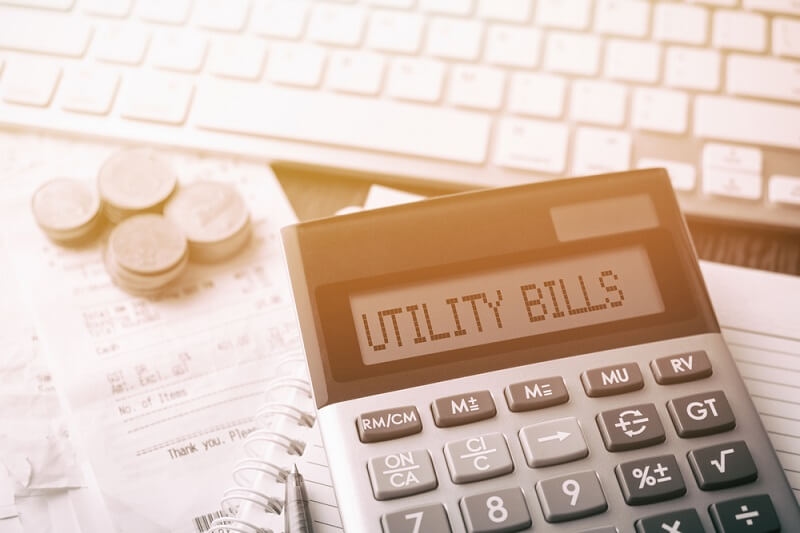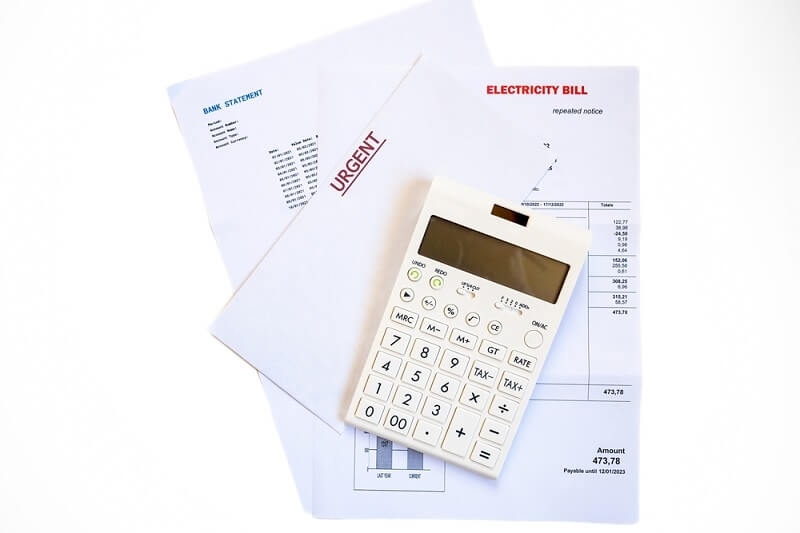
It can be daunting to manage household costs, particularly when utility bills continue to rise year on year. However, there is some good news – you do not need to make dramatic changes or spend a fortune on renovations. You can notice a sharp reduction in your monthly bill with some simple adjustments. From cutting down electricity bill tips to intelligent water-saving tips for the home, and even gas bill monthly tips to reduce it, such practical tweaks assist you in setting up a more efficient, cost-effective home.
The book summarizes practical tips that everybody can follow, regardless of home size or living habits. Attention to minute day-to-day actions and thoughtful planning will lessen energy use, save money, and help the environment without sacrificing comfort.
Utility bills account for a substantial percentage of a homeowner's expenses. Electricity, water, gas, and heating bills change yearly but are typically higher during holidays. Learning how to budget utility bills can help save you money while gaining control over your monthly budget.
Consider these benefits:
The great news? You don't have to transform your whole house. Even small changes in behavior and home maintenance add up over the years.

Electricity is usually the most significant utility bill in a home. The best part is that it's also the simplest to reduce with everyday adjustments.
Old incandescent bulbs waste energy and have a short life. By changing to LED lights, you can reduce lighting expenses by as much as 75%. LEDs also have a longer lifespan, which means lower replacement costs.
Electronics such as chargers, computer game consoles, and microwaves consume power when turned off, but not actually being used—this is called phantom load. A power strip makes it easy to turn off a group of devices using one switch.
Reduce your thermostat by a few degrees during winter and increase it by a few degrees during summer. A programmable thermostat ensures your HVAC system doesn't waste energy running when you're not around.
Purchase ENERGY STAR-rated appliances when replacing major appliances (like refrigerators, washing machines, and dishwashers). They will save you a significant amount of electricity while providing the same level of usability.
Ceiling fans help circulate the air when they are running and will also help reduce the need for heavy use of AC in the summertime. Consider switching the fans' direction during the winter to push the warm air down.
By using these tips to help reduce your electricity bill, you can lower your monthly bill while also sleeping comfortably at night.
Water bills are another area where small steps add up to significant change. With these hacks for saving water at home, you can save water daily and money.
A dripping faucet can waste several gallons of water in a month, and a leak from a toilet is even worse since it silently adds to the monthly bill. Quick repairs prevent water loss.
Shower heads and low-flow faucets save much water without a reduction in water pressure.
Reducing the length of your shower by a few minutes saves dozens of gallons of water per week. Get family members to watch out for the duration of the shower.
The dishwasher and washing machine—run full loads to ensure maximum water efficiency.
Using rain barrels or containers to collect water for your outdoor plants it helps reduce your dependence on the hose.
Using these water-saving hacks in your home will limit waste and keep you from going over budget each month.
Gas heat is needed in many homes, particularly in colder months. Here are ways to conserve gas without living in an uncomfortably cold house.
When warm air leaks around windows and doors, your heater must work harder. Weatherstripping and insulation make the entire heating system more effective.
Regular maintenance will allow your heating system to operate as efficiently as possible and save you from an expensive breakdown.
Many water heaters are set too hot. By turning it down to 120°F, you can provide comfortable hot water for bathing while reducing heating costs.
When cooking on the stovetop, ensure that the lid of your saucepan is on as much as possible. You are using the energy generated by gas ( or electric ) to heat water, and a lid will conserve heat and moisture while shortening cooking time. For smaller meals, use small appliances such as microwaves and air fryers instead of preheating the oven.
Dressing in warmer clothing lets you turn down the thermostat a degree or two, saving dollars without sacrificing comfort.
Following these steps to reduce your gas bill monthly will result in significant savings in the long run.
Cost-controlling isn't all about cutting back on use—it's also about being smart about planning. Budgeting utility bills keeps you ahead of the seasonal peak and out of financial distress.
Compare season bills to look for patterns and locate high-consumption seasons.
Dedicate a fixed amount for utilities in your personal budget. If you're under, transfer the overage to savings.
Most utility companies have plans that average your bill over the year for predictability.
Smart meters and smartphone apps provide real-time energy use monitoring, with immediate feedback on wasteful behavior.
By including utility bill budgeting in your finances, you will be in charge and no longer have surprises.
Some of the most effective changes don’t cost a dime—they just require consistency. Here are simple daily adjustments for saving money on home energy:
Once these small habit changes become second nature, you'll see savings over time.
Each season has challenges to consider for both water and energy use. Here are some ideas to change throughout the season:
Although minor hacks or changes will help you save money on your bills immediately, long-term interventions generate a compounding benefit over time. Here are some long-term expenses you might want to consider if you can reasonably afford them right now, keeping in mind that they do have significant upfront costs:
Solar panels require a significant initial investment, but you can recoup the expense over time with electricity savings.
Upgrading your home reduces bills and increases comfort, home value, and utility bill savings over time.
Be smart about slashing costs (or bills!): the best way to save is by layering strategies. The savings tips for cutting electricity bills, the hacks for saving water at home, and the hacks for reducing gas bills each month can become exponential, just by doing them all! When you do utility bill budgeting, and the energy-saving life hacks suggest ways for saving money on your home energy, together you will develop a systemic approach to begin reducing your costs sustainably.
Learning to trim utility bills doesn't require sacrifices—it just requires being smarter about your resources. Whether with simple solutions such as turning off unused electronics or bigger investments such as new appliances, every action counts. You can significantly reduce monthly costs by using these ideas for lowering electricity bills, water-conserving hacks for the home, and tips for reducing monthly gas bills. Pair those with strong utility bill budgeting practices, and you’ll save money and create a more efficient, eco-friendly household.
It’s never too late to start. Start today with one or two easy changes, and see your bills go down and your savings go up.
This content was created by AI